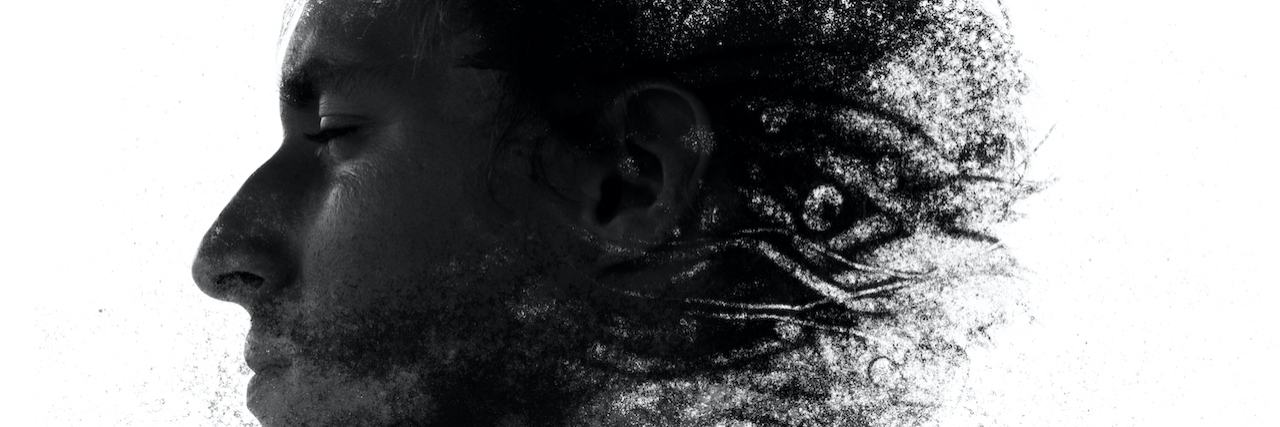Most people associate hearing voices or auditory hallucinations with schizophrenia. But almost no one speaks of this issue when it comes to bipolar disorder, despite the fact that 20-50 percent of us who live with bipolar experience them, according to Psychiatric Times.
• What is Bipolar disorder?
Hearing things that aren’t there is scary. Like very scary.
While I don’t hear voices per se, I do hear noise. Sometimes if I am at a party in an enclosed space with lots of loud talking, when I leave the space, I hear a jumble of sounds that echoes throughout my brain and won’t stop. It’s as if I am hearing a murmur of dialogue lingering all at once after the party. Many voices in dissonance.
When this happens, I immediately need to jump in a taxi or rideshare and head home. I remember one instance in which my auditory hallucinations caused a panic attack. In the cab, I would lay down, then get up, lay down and get up. I couldn’t stop moving.
I’m a recovering alcoholic and If I have a craving in a public place where alcohol is present, I also leave instantly.
These situations are worse than my most terrible anxiety symptom: perpetual sweaty palms.
I started noticing this happening several years ago at a party my ex-partner and I threw at our spacious apartment in DUMBO, Brooklyn during my first and major manic episode. I was stuck. Nowhere to hide. Everyone’s coats were on the bed, so I couldn’t even retreat to my bedroom. There was nowhere to go.
But the noise persisted and I just drank and drank more to keep the noise at bay. It didn’t work. It just made it more awful. Auditory hallucinations also happen to me in places with high ceilings. For example, after seeing a concert at a venue with high ceilings, I hear the same “blah blah blah blah blah” on repeat from everyone exiting the show. Crowd noise. There are no distinct words. Just an annoying babbling of lots of voices that are indecipherable. It won’t stop.
Music is my higher power in Alcoholics Anonymous, and when this happens, it is my savior.
I sit in the dark, I light a candle, I have a cup of tea, and I fire up Spotify to listen to quiet music. It’s usually but not limited to classical: Mozart, Beethoven, Bach, Vivaldi, all the greats. Sometimes I listen to quiet indie music like Air’s “Moon Safari,” Yo La Tengo’s “And Then Nothing Turned Itself Inside-Out” or Beck’s “Morning Phase.” They’re great for calming you down in any situation, because you can’t sleep with auditory hallucinations. It is pretty much impossible.
These auditory hallucinations are the most scary part of my diagnosis. I’m not alone. According to Scientific American, “Healthy people also experience hallucinations. Drugs, sleep deprivation and migraines can often trigger the illusion of sounds or sights that are not there. Even in the absence of these predisposing factors, approximately one in 20 people hear voices or see visual hallucinations at least once in their lifetimes.”
This data comes from studies by the the World Health Organization.
“Scientific American” also says transcranial magnetic stimulation (TMS) may be an effective treatment for auditory hallucinations.
I wouldn’t wish auditory hallucinations on my worst enemy, but I am comforted that I have a plan when they strike and I know from all my experience that the noise will always stop. Eventually.
Getty image by LUMEZIA

